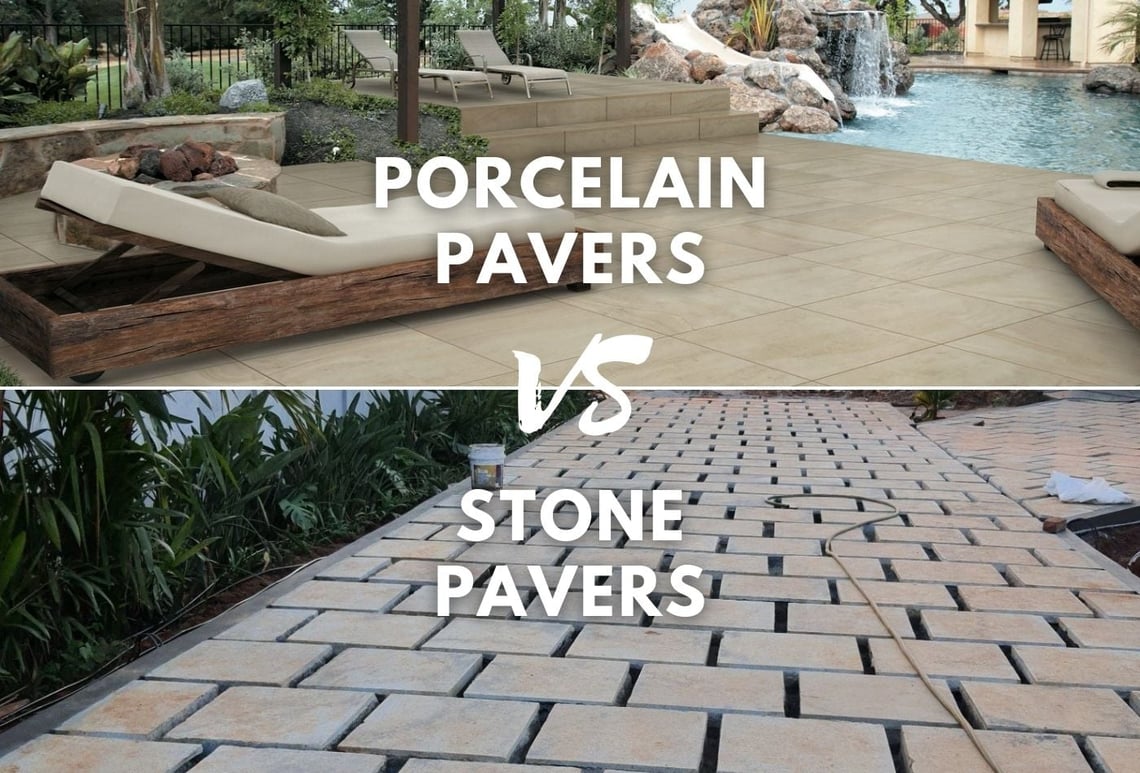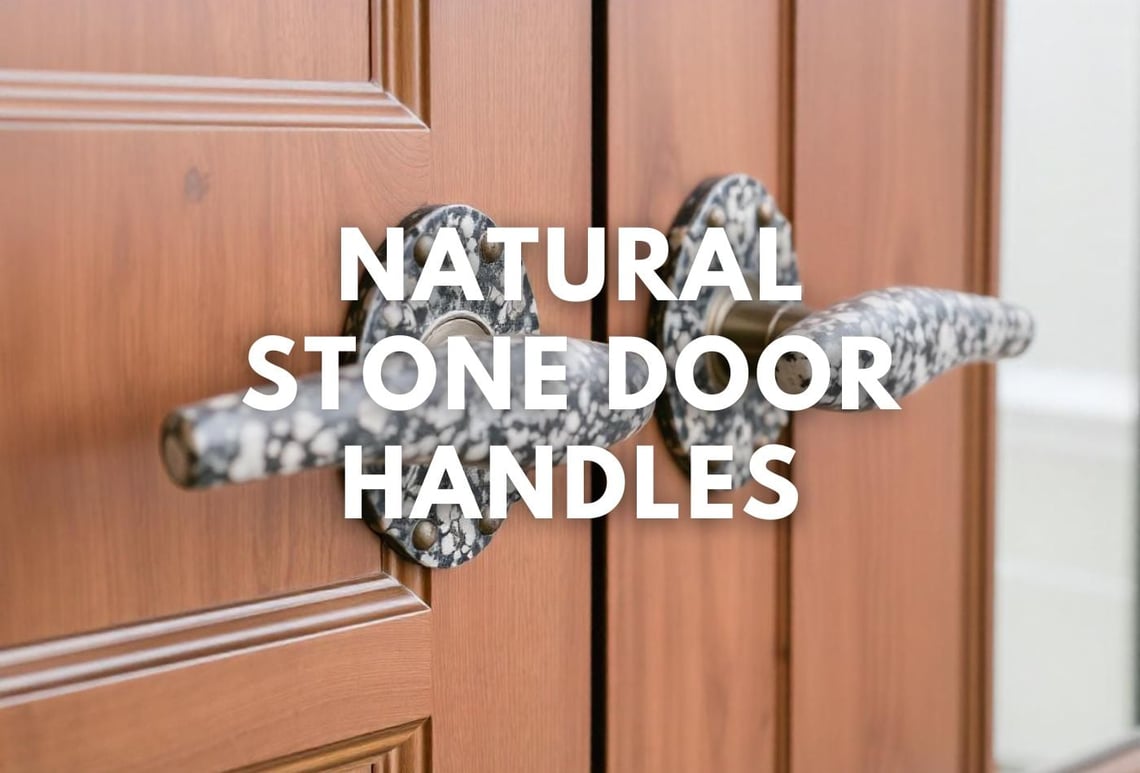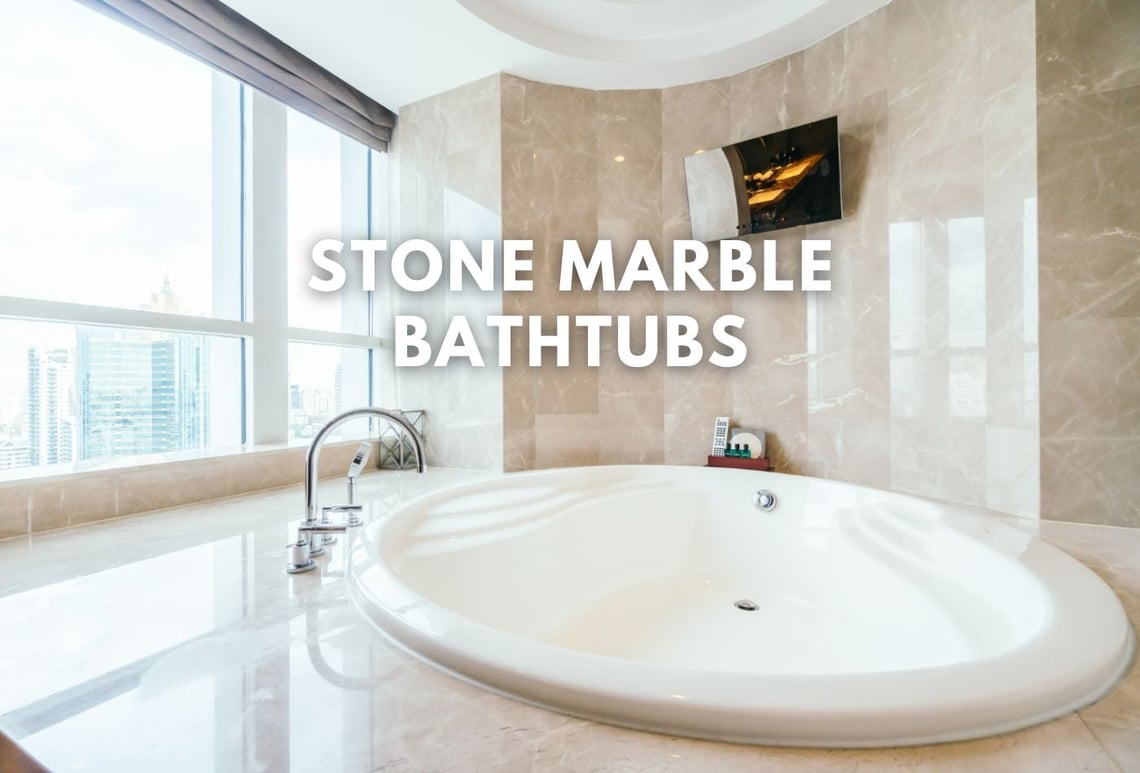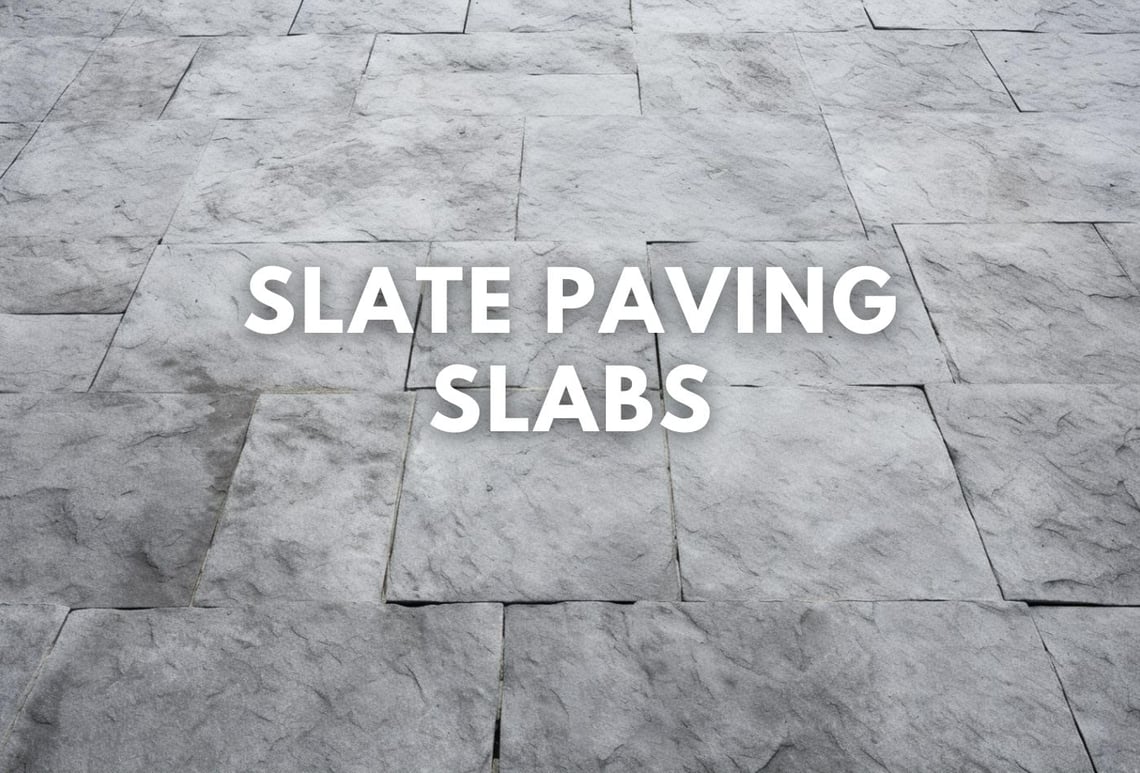Table of Contents
When selecting the perfect outdoor flooring, the choice between porcelain pavers vs stone pavers is crucial. Both options offer unique advantages, making them popular for patios, walkways, and other outdoor spaces. Porcelain pavers, known for their durability and low maintenance, provide a modern, sleek appearance, often mimicking natural stone or wood. On the other hand, Porcelain pavers vs stone pavers, such as Granite, limestone, or travertine, bring a timeless, natural aesthetic with their unique textures and colours. Understanding the differences in durability, maintenance, aesthetics, and cost can help you decide which material best suits your outdoor project's needs.
For more information, call 03330 113 5868 and Get a Free Quote.
Comparisons of Porcelain Pavers vs Stone Pavers

Porcelain Paver vs Stone Pavers vs Natural Stone
Choosing between porcelain pavers vs stone pavers vs natural stone can transform your outdoor space, but each option offers something different.
-
Porcelain pavers are a top choice for those seeking a sleek, modern look. They’re incredibly durable and resistant to stains, moisture, and temperature fluctuations, making them virtually maintenance-free. Plus, they come in various styles, often mimicking natural materials like stone or wood, without the hassle.
-
Stone pavers, typically made from concrete, are versatile and durable. They’re available in various shapes and sizes, allowing for creative patterns and designs. While they may not have the same luxury feel as natural stone, stone pavers are more affordable and still deliver a solid, attractive finish.
-
Natural stone is the go-to for a classic, timeless look. Materials like Granite, Travertine, and Limestone offer unmatched natural beauty, each piece having unique textures and colours. However, natural stone can be more expensive and requires regular maintenance to keep its charm intact.
In essence, porcelain pavers vs stone pavers offer modern convenience, stone pavers provide versatility and affordability, and natural stone delivers unmatched elegance. Your choice depends on your style preference, budget, and willingness to maintain your outdoor space.
RUIVINA ESCURA MARBLE
£264.05 Ruivina Escura Marble is a grey hue. It is from Portugal. Ruivina Escura Marble is suited for both indoor and outdoor use. Natural factors such as snow, rain, wind, and pollution can all have an impact on the beauty and… read more |
TITANIUM QUARTZITE
£361.25 Titanium Quartzite is a stunning slab that has a perfect blend of black, white and gold. The colours together form a majestic flowing pattern. This surface stone is suitable for all interior and exterior spaces. It makes the best interior… read more |
SIBERIA SENSA
£484.88 Siberia Sensa has a milk-white backdrop with black particles and grey faded short veins that adorn the stone. It is given a dazzling finish that makes a perfect addition in both residential and commercial settings. It is a dream come… read more |
Sandstone vs Porcelain Patio
Choosing a sandstone and porcelain patio depends on your style and maintenance preferences.
Sandstone offers a natural, rustic look with unique textures and colour variations, providing a timeless appeal. However, regular sealing and maintenance are required to prevent staining and weathering.
Conversely, Porcelain is highly durable, stain-resistant, and low-maintenance, with a wide range of styles, including options that mimic natural stone. While sandstone gives a more authentic, organic feel, Porcelain offers modern convenience and long-lasting performance, making it ideal for busy homeowners or areas with harsh weather conditions.
Porcelain vs Marble Pavers

When choosing between Porcelain and Marble pavers, consider durability, maintenance, and aesthetics.
Porcelain pavers are highly durable, stain-resistant, and low-maintenance, ideal for outdoor areas with heavy foot traffic or harsh weather. They come in various styles, including designs that mimic marble, offering a modern, sleek look without the upkeep.
Marble pavers, on the other hand, provide luxurious, timeless beauty with natural veining and elegance. However, Marble requires regular sealing and maintenance to prevent staining and weathering, and it can be more expensive. Choose Porcelain for practicality and marble for luxury and natural beauty.
Natural Stone VS Porcelain Tile Patio
Natural Stone Patio:
-
Aesthetic Appeal: Offers a timeless, natural look with unique textures and colours; each piece is one-of-a-kind.
-
Durability: Extremely durable and long-lasting, but can be prone to weathering over time.
-
Maintenance: Requires regular sealing and upkeep to prevent staining and damage from moisture.
-
Cost: Typically more expensive due to the material's quality and installation complexity.
-
Environmental Impact: A natural product with minimal processing, making it eco-friendly.
Porcelain Tile Patio:
-
Aesthetic Flexibility: Available in various styles, including designs that mimic natural stone, wood, or concrete.
-
Durability: Highly resistant to stains, scratches, and temperature changes; ideal for all weather conditions.
-
Maintenance: Low maintenance, needing only occasional cleaning without sealing.
-
Cost: Generally more affordable than natural stone, with more straightforward installation.
-
Consistency: Provides a uniform look with consistent colour and texture across the patio.
Choose based on your preference for natural beauty vs. modern convenience.
What are the Disadvantages of Porcelain Paving Slabs?
Porcelain paving slabs have a few disadvantages. They can be slippery when wet, especially with a polished surface. Installation requires a strong adhesive and skilled labour, making it more complex and potentially costly. Additionally, while durable, Porcelain can be brittle, leading to cracks if not properly handled during installation. Finally, they can feel colder underfoot compared to natural stone, which might be a concern in cooler climates. In these disadvantages, porcelain pavers vs stone pavers will help increase the value of the stones.
Porcelain Pavers vs Stone Pavers Pros and Cons
Porcelain Pavers:
Pros:
-
Durability: Extremely resistant to stains, scratches, and temperature fluctuations, making them ideal for various climates.
-
Low Maintenance: Requires minimal upkeep—no sealing needed, just occasional cleaning.
-
Variety: Available in numerous styles, colours, and finishes, including options that mimic natural stone, wood, or concrete.
-
Non-porous: Water-resistant, reducing the risk of mould and mildew.
Cons:
-
Installation Complexity: Requires precise installation with strong adhesive; professional help may be necessary.
-
Brittleness: Can crack if not handled properly during installation.
-
Cost: While generally affordable, higher-end designs can be expensive.
These pros and cons of porcelain pavers vs stone pavers will help you to think and understand that all stones are better to use for all areas and places.
THUNDER WHITE GRANITE
£302.12 Thunder White Granite has white, cream, and grey veining with small, deep crimson patches. Thunder White is a common choice for those looking for a "marble" aesthetic with the durability of Granite. It is mined in India. Thunder White looks… read more |
CALACATTA AUROUS QUARTZ
£338.19 Calacatta marble, which is renowned for its opulent beauty, striking veining, and predominately white backdrop, is probably the source of inspiration for Calacatta Aurous Quartz. It pairs nicely with all areas due to the distinctive veining and white tones. "Aurous"… read more |
Stone Pavers:

Pros:
-
Natural Beauty: Offers unique, organic textures and colours, providing a timeless, elegant look.
-
Durability: Long-lasting, especially in natural stone varieties like granite and travertine.
-
Versatility: Suitable for a variety of designs and patterns.
Cons:
-
Maintenance: Requires regular sealing and maintenance to prevent weathering, staining, and moss growth.
-
Cost: It can be more expensive, particularly with premium natural stones.
-
Inconsistency: Natural variations in stone may lead to uneven surfaces and colour inconsistencies.
Choose Porcelain for a modern, low-maintenance option and stone for a natural, timeless aesthetic.
Porcelain Pavers vs Stone Pavers Cost
Porcelain pavers generally cost less than natural stone pavers, with prices ranging from £17.25 to £20.25 per square foot. Stone pavers, depending on the type, can range from £24.25 to £34.25 per square foot, plus higher installation costs.
What are the Problems with Porcelain Paving?
Porcelain paving vs stone pavers can be slippery when wet, challenging to install due to their brittleness, and may require professional installation. Additionally, it can feel cold underfoot and lacks the natural variations found in real stone.
Conclusion
In conclusion, porcelain pavers vs stone pavers offer exceptional durability, low maintenance, and versatile styles ideal for modern settings. Stone pavers provide natural beauty and timeless charm but require more upkeep. Your choice should reflect your aesthetic preferences, budget, and how much maintenance you’re willing to commit to, ensuring the best fit for your outdoor space.
P.s. The readers are informed that none of the content available on any of the pages of Work-tops.com should be taken as legal advice and that Work-tops will not be held accountable for your use of the information contained in or linked from these web pages.




